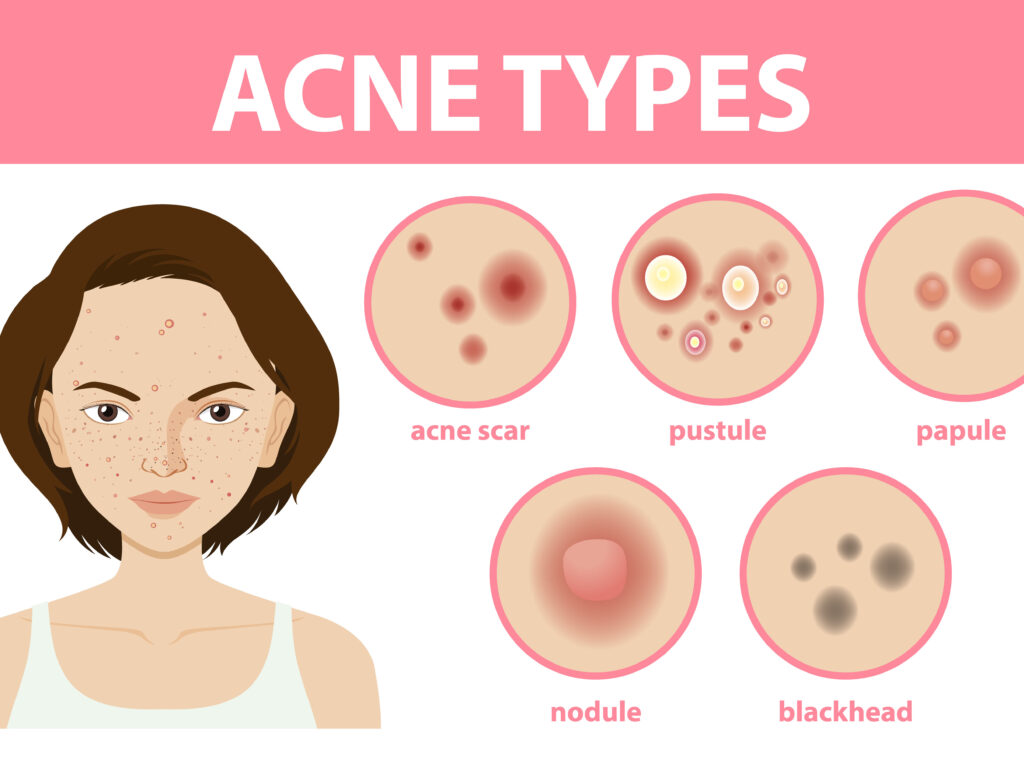Let’s say you’re invited to a party. While getting ready in front of the mirror, you absorbed acne and wrinkles on your skin and assumed they would put you in an awkward situation at the party. Here is how to deal with your awkward situation: Then you must try this product called SERUM.
What is Serum
Compared with other products, serums are more fluid and lighter in texture. This enables them to easily penetrate the skin and deliver active ingredients to the targeted cells. Serums are highly effective for treating acne, pigmentation, aging, and uneven skin tones. They contain a potent combination of active ingredients, such as vitamins, antioxidants, peptides, and acids, that address specific skin concerns.
Why does one need to use Serum
Texture Improvement:
Serums with alpha-hydroxy acids (AHAs) or beta-hydroxy acids (BHAs) can improve skin texture. These acids work as chemical exfoliants, gently removing the top layer of dead skin cells. This leads to a smoother, brighter skin.
Skin Brightening:
For addressing concerns like dark spots, hyperpigmentation, and dullness, serums with vitamin C and niacinamide can be beneficial. Vitamin C is a powerful antioxidant, and niacinamide helps regulate oil production and gives skin an even tone.
Reduction of Acne:
Serums containing salicylic acid, niacinamide, or tea tree oil can help with acne. Salicylic acid works by exfoliating the skin and clearing clogged pores. Niacinamide may reduce the appearance of acne. Tea tree oil has antiseptic and anti-inflammatory properties that help prevent dark spots.
Removal of Wrinkles and Fine lines:
Many serums target signs of aging, such as fine lines and wrinkles. These include ingredients like retinol, hyaluronic acid, or peptides. Retinol is a type of vitamin A that promotes collagen production and improves skin texture. Hyaluronic acid is a humectant that draws moisture to the skin and minimises the appearance of fine lines. Peptides are amino acids that increase collagen production.
Ingredients to look for in serum
Vitamin C:
Vitamin C, also known as ascorbic acid, is a powerful antioxidant that provides numerous benefits when applied topically to the skin in serums.
1. Boosts collagen production
2. Gives Brightening skin tone
Niacinamide:
Niacinamide, also known as vitamin B3, is a popular ingredient found in serums and other skincare products.
1. Reduces pores.
2. Reduces sebum production.
3. Reduces the appearance of Hyper Pigmentation.
Salicylic acid:
Salicylic acid is a beta-hydroxy acid (BHA) that is commonly used in serums to treat a variety of skin concerns, most notably acne.
1. Helps in fighting with acne.
2. Helps in unclogging pores.
3. Helps in the exfoliation of skin.
Hyaluronic acid:
Hyaluronic acid plays an important role in keeping our skin hydrated. This makes it a potent ingredient in serums.
1. Helps in the hydration of skin.
2. Improves skin elasticity.
Follow this while shopping for serums
Choosing the right serum is what makes the difference. Key factors to consider while choosing serums:
Skin Type:
Dry skin: Look for serums that contain hyaluronic acid, which helps the skin hydrate.
Oily skin: Choose an oil-free serum with ingredients like salicylic acid and niacinamide to control oil production and help in tightening pores.
Combination skin: Always look for light water-based serums for hydration, and fragrance ingredients with hyaluronic acid and niacinamide will help.
Skin concerns:
Acne: serums containing salicylic acid and retinol can help reduce acne breakouts and improve appearance.
Wrinkles and Fine lines: serum with peptides and retinol helps in collagen production and reduces the appearance of wrinkles.
Dark Spots and Hyperpigmentation: Look for serums with niacinamide and vitamin C to help reduce dark spots and brighten skin.

Ingredients:
Pay attention while choosing the different serums. Examine the ingredients in detail. Avoid serums containing harmful chemicals and irritants.
How to use Face Serum
1. Cleanse the face with a face wash to remove dirt and oil then follow up with toner.
2. Apply a small amount of serum to your fingertips and gently massage it into your skin, focusing on areas prone to acne and pigmentation.
3. Let the serum completely dry on your face.
4. For even better results, apply moisturizer and sunscreen afterwards.
Things to Remember
1. Consult a dermatologist before trying new skincare products, especially if you have sensitive skin or any other concerns.
2. A basic routine of cleansing, moisturizing, and sun protection might be enough for some people. Not everyone needs serum.
3. Serums don’t replace moisturizers. They only address specific concerns like acne and pigmentation.
Conclusion:
Face serum is an excellent choice to make your skin glow. It not only nourishes the skin but also helps in fighting against acne, oil reduction, and improving the overall texture of the skin. With consistent use, serum can help improve the appearance and health of the skin, resulting in a more radiant, youthful, and balanced complexion. Begin your skincare with newly available serums.

Great. information !!!